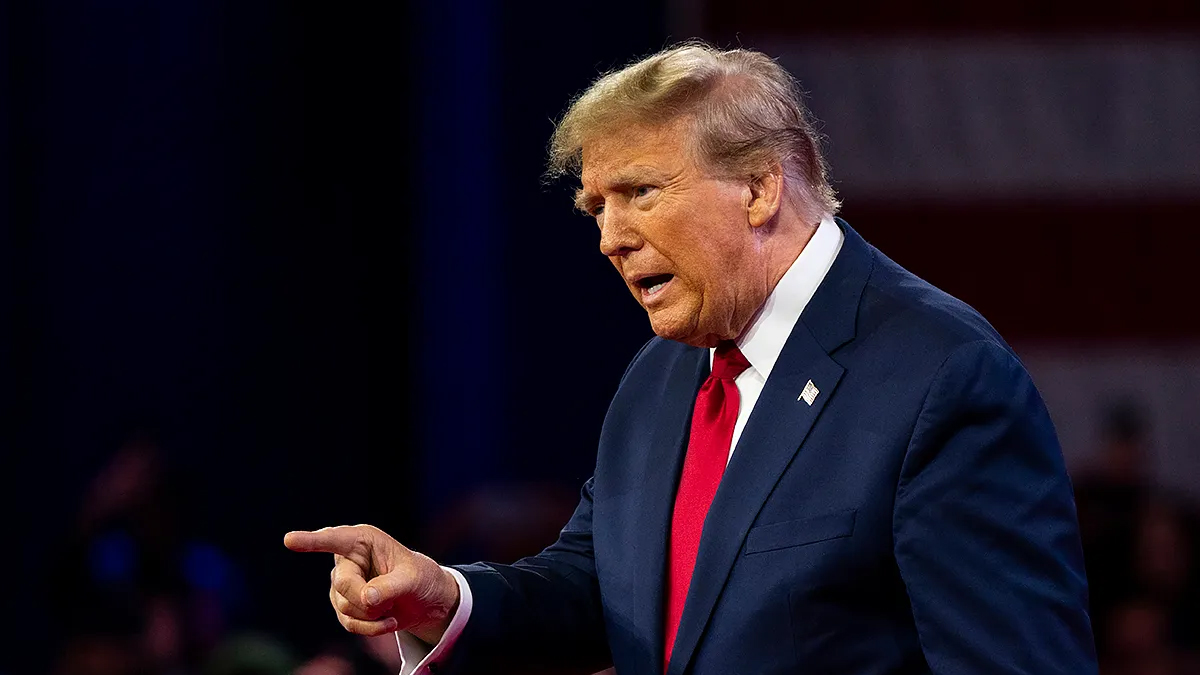- Home
- Billionaires
- Investing Newsletters
- 193CC 1000
- Article Layout 2
- Article Layout 3
- Article Layout 4
- Article Layout 5
- Article Layout 6
- Article Layout 7
- Article Layout 8
- Article Layout 9
- Article Layout 10
- Article Layout 11
- Article Layout 12
- Article Layout 13
- Article Layout 14
- Article Sidebar
- Post Format
- pages
- Archive Layouts
- Post Gallery
- Post Video Background
- Post Review
- Sponsored Post
- Leadership
- Business
- Money
- Small Business
- Innovation
- Shop
Recent Posts
Illinois Judge Pauses Trump Ballot Removal, Appeal Pending

Illinois Judge Tracie Porter has made a significant decision regarding the upcoming Illinois primary ballot, temporarily pausing her ruling that initially struck former President Donald Trump from the state’s Republican primary ballot. This decision comes in the midst of a larger legal debate over whether states have the authority to remove Trump from the ballot due to his alleged involvement in the January 6 riot at the U.S. Capitol.
Judge Porter’s ruling on Wednesday was a response to the Illinois Board of Elections’ decision to keep Trump on the ballot, which she deemed “clearly erroneous.” Her ruling was based on the 14th Amendment’s insurrection clause, which prohibits individuals who have engaged in insurrection or rebellion against the U.S. government from holding office. Porter’s decision was immediately put on hold, pending an appeal from Trump’s attorneys.
Trump swiftly appealed the ruling on Thursday morning, prompting Porter to agree to pause her decision until the appeal process is complete. This means that Trump will remain on the ballot for Illinois’s Republican primary, scheduled for March 19.
Porter’s ruling is part of a larger trend, with officials in Colorado and Maine also taking steps to remove Trump from their respective ballots. The Supreme Court is currently considering a challenge to Colorado’s decision, with justices expressing skepticism about the legality of such actions during oral arguments earlier this month. However, as of now, no ruling has been issued.
Surrogates for Trump have strongly criticized Porter’s decision, with Trump’s campaign spokesperson Stephen Cheung accusing “Democrat front-groups” of attempting to interfere in the election and deny Trump his rightful place on the ballot. The campaign has described the ruling as unconstitutional and has vowed to appeal.
Despite the legal challenges, Trump continues to lead his rival Nikki Haley by a significant margin in recent polls for the Illinois primary. The outcome of this legal battle could have far-reaching implications for Trump’s political future and the broader issue of how states can address concerns about candidates with controversial backgrounds.
Recent Posts
Categories
- 193cc Digital Assets2
- 5G1
- Aerospace & Defense46
- AI37
- Arts3
- Banking & Insurance11
- Big Data3
- Billionaires449
- Boats & Planes1
- Business328
- Careers13
- Cars & Bikes76
- CEO Network1
- CFO Network17
- CHRO Network1
- CIO Network1
- Cloud10
- CMO Network18
- Commercial Real Estate7
- Consultant1
- Consumer Tech180
- CxO1
- Cybersecurity68
- Dining1
- Diversity, Equity & Inclusion4
- Education7
- Energy8
- Enterprise Tech29
- Events11
- Fintech1
- Food & Drink2
- Franchises1
- Freelance1
- Future Of Work2
- Games141
- GIG1
- Healthcare78
- Hollywood & Entertainment186
- Houses1
- Innovation42
- Investing2
- Investing Newsletters4
- Leadership65
- Lifestyle11
- Manufacturing1
- Markets20
- Media193
- Mobile phone1
- Money13
- Personal Finance2
- Policy567
- Real Estate1
- Research6
- Retail1
- Retirement1
- Small Business1
- SportsMoney33
- Style & Beauty1
- Success Income1
- Taxes2
- Travel10
- Uncategorized8
- Vices1
- Watches & Jewelry2
- world's billionaires418
Related Articles
Trump Moves $4B Stake in Truth Social Parent, Stock Drops 6%
Donald Trump recently transferred his 57% stake in Trump Media & Technology...
By 193cc Agency CouncilDecember 20, 2024House Rejects Trump-Backed Funding Bill, Shutdown Looms
The U.S. House of Representatives rejected a new government funding bill on...
By 193cc Agency CouncilDecember 20, 2024Trump Named Time’s Person of the Year for Second Time
On Thursday, Time magazine honored Donald Trump as its “Person of the...
By 193cc Agency CouncilDecember 12, 2024Meta Donates $1 Million to Trump’s Inaugural Fund
Meta, the parent company of Facebook and Instagram, has confirmed a $1...
By 193cc Agency CouncilDecember 12, 2024















Leave a comment